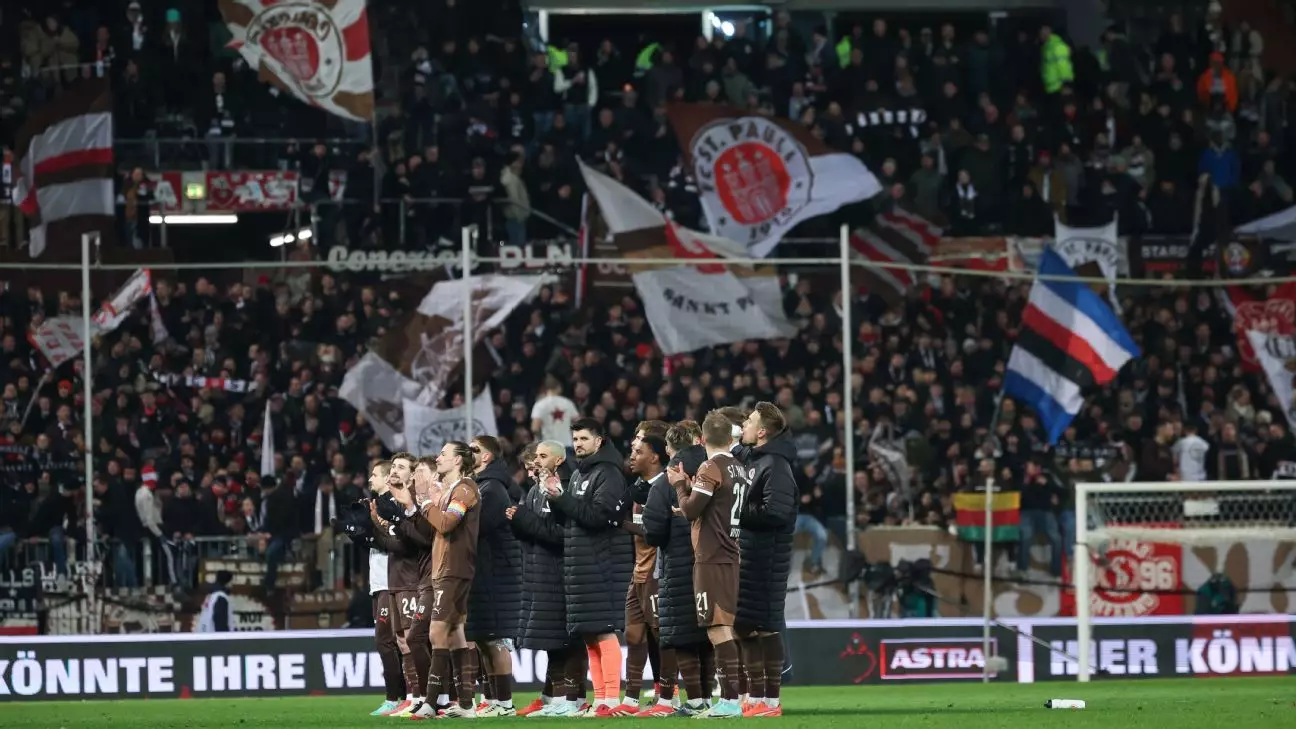In a groundbreaking move within the realm of sports, FC St. Pauli has taken an unprecedented leap into fan ownership, raising over $29.1 million to secure a majority stake in their iconic Millerntor Stadium. This initiative symbolized not only a financial commitment but also a deep-seated community ethos that emphasizes collective empowerment and shared responsibility. With more than 21,000 supporters joining the cooperative, it’s clear that a powerful trend is emerging within football: fans are demanding a seat at the table.
The Mechanics of Cooperation
The fundraising campaign was ingeniously designed to engage supporters at every level. By allowing members to buy shares at a price of $917, which included fees and contributions, St. Pauli effectively lowered entry barriers for involvement. This model caters to a diverse group of supporters—working-class fans and affluent stakeholders alike—demonstrating the club’s commitment to inclusivity. The excitement crescendoed in the final hours of the subscription period, showcasing the fervor and loyalty that the St. Pauli community holds for their club.
Creating Long-Term Stability
The goal behind this venture extends far beyond fan ownership; it aims to foster long-term financial stability for St. Pauli. As commercial director Wilken Engelbracht aptly noted, acquiring a majority stake in the stadium will allow the club to reduce its financial liabilities more efficiently than anticipated. In the fiercely competitive atmosphere of the Bundesliga, financial maneuverability can be the difference between survival and relegation. The timing of this move is particularly strategic, as the club faces the ongoing challenge of maintaining its position in the Bundesliga after earning promotion last season.
The Role of High-Profile Supporters
The cooperative’s backing by influential figures, including Bayern Munich’s Uli Hoeness, highlights the communal spirit enriching this endeavor. Hoeness’s historic connection to St. Pauli, particularly during its financial struggles in 2003, embodies the idea that rivalries in football can transform into alliances for the greater good. Such endorsement further legitimizes the initiative and raises its profile within German football, presenting a compelling case for other clubs to follow suit.
Next Steps and Future Aspirations
With the subscription phase now complete, the cooperative’s board faces the crucial task of finalizing outstanding orders and reviewing membership numbers ahead of their first general meeting set for June. This gathering presents an opportunity for the club to lay out a roadmap for the future, reinforcing the idea that fan involvement will be central to every strategic decision moving forward. St. Pauli’s president, Oke Göttlich, articulated a clear ambition to utilize this newfound momentum to not only solidify their Bundesliga status but also to transform the club’s identity from a traditional sports team into a pioneering model of supporter-driven engagement.
By crafting a more interconnected relationship with its fanbase, St. Pauli has set a compelling precedent that redefines the landscape of club ownership in football. In doing so, they not only reinforce their legacy but also pave the way for a future where fans are unequivocally at the forefront of the sporting narrative.

